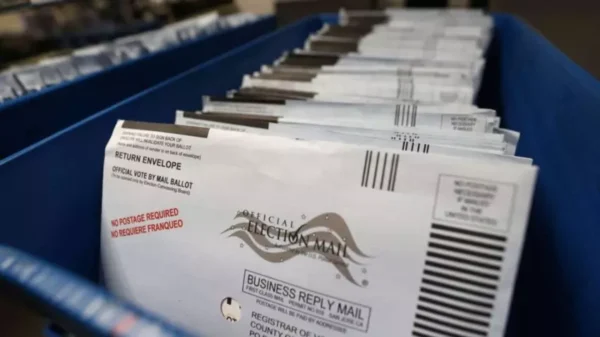Case Heads to Supreme Court After Divided Three-Judge Panel Overturns Louisiana Congressional Map with Two Majority-Black Districts
SHREVEPORT, La. – A group of Black voters and civic organizations filed a notice of appeal to the U.S. Supreme Court after a divided panel of three federal court judges overturned Louisiana’s congressional map that had two majority Black districts last night.
The court in Callais v. Landry held that legislators had improperly prioritized race when enacting the map during a special legislative session in January of this year. The decision conflicts with a series of court decisions in a separate case that required the legislature to draw a second majority Black district.
The following is reaction to that April 30 ruling:
“The dilution of Black voting power in Louisiana has long kept Black Louisianians from having representatives of their choice,” said Nora Ahmed, legal director, ACLU of Louisiana. "We are disappointed to learn this harmful pattern has been upheld at this juncture of the lawsuit, but we are undeterred in our fight for fair elections for Black Louisianians."
“This decision does not change the fact that a second Black majority district is required for Black voters in Louisiana to have an opportunity for fair and equal representation. We will continue to fight for the fundamental right of Black Louisianians, whose voting power has continually and severely been diluted,” said Sarah Brannon, deputy director of the ACLU’s Voting Rights Project.
“We will continue to fight for a map that fairly represents Black Louisianians during and beyond the 2024 congressional elections,” said Stuart Naifeh, redistricting manager for the Legal Defense Fund. “Today’s decision creates chaos and confusion and is a slap in the face to Black voters who have already gone through one congressional election under a map that dilutes their votes. The law is clear that states must abide by the Voting Rights Act and can properly consider race when doing so, as the Supreme Court told us just last year. We will not stand by for another election without a fair map for Louisiana.”
The 2020 census revealed Louisiana’s Black population increased while the white population decreased. Still, Louisiana’s Legislature passed a congressional map in 2022 that limited Black voters’ representation to only one out of six congressional districts.
A group of Black voters and civic organizations immediately filed Robinson v. Landry (then Robinson v. Ardoin), arguing that the map violated Section 2 of the federal Voting Rights Act (VRA). Section 2 prohibits state and local governments from using any voting procedure that “results in a denial or abridgement of the right of any citizen…to vote on account of race or color.” Plaintiffs argued that the 2022 map did exactly that by weakening Black Louisianians’ voting power.
After years of litigation, the federal courts gave the Louisiana Legislature until the end of January 2024 to pass a map that complied with the Voting Rights Act. The result was a map with a second majority-Black district connecting communities in Baton Rouge and up along the Red River, from Alexandria to Shreveport along the I-49 corridor. Legislators cited political priorities for this map.
Shortly after, the plaintiffs in Callais challenged the newly enacted map as an unconstitutional racial gerrymander. Plaintiffs claimed that “race was the sole reason” for the passage of the map. Plaintiffs in Robinson quickly intervened in the Callais litigation to defend the rights of Black voters to have a fair and representative map in 2024.
“We are undeterred in our fight for a fair map in Louisiana,” said Ashley Shelton, president/CEO of Power Coalition for Equity and Justice. “We will continue to fight for a map that reflects our communities, that honors the promise of the Voting Rights Act, and that respects the voices of thousands of Louisianians who have engaged throughout the redistricting process. We have been clear since day one in our call for a fair and representative map.”
“We are delayed but not deterred in our ongoing fight for a fair congressional map,” said Michael McClanahan, president of the NAACP Louisiana State Conference. “While we disagree with the ruling today, we know that the law and the facts remain clear and that Louisiana’s Black population deserves the full protections of the Voting Rights Act and a map that allows us to have a voice in the political process. We need fair representation in Congress — that is the only path forward.”
“While the decision of the court is disappointing, this is not the end of the fight for fair and equitable maps. We will not stop fighting until the voters of Louisiana get the map that they deserve,” said Alora Thomas, senior counsel, Harvard Election Law Clinic.
The Robinson intervenor-defendants are represented by the American Civil Liberties Union, ACLU of Louisiana, Legal Defense Fund, Harvard Election Law Clinic, Louisiana Justice Institute, Louisiana attorney John Adcock, and Paul, Weiss, Rifkind, Wharton & Garrison LLP.
Stay informed
Sign up to be the first to hear about how to take action.
By completing this form, I agree to receive occasional emails per the terms of the ACLU's privacy statement.
By completing this form, I agree to receive occasional emails per the terms of the ACLU's privacy statement.


